Published Jul 19, 2019
Your Guide to All the Essential Moon Landing Media
10 Books, movies, and more to celebrate the 50th Anniversary of the Moon landing .
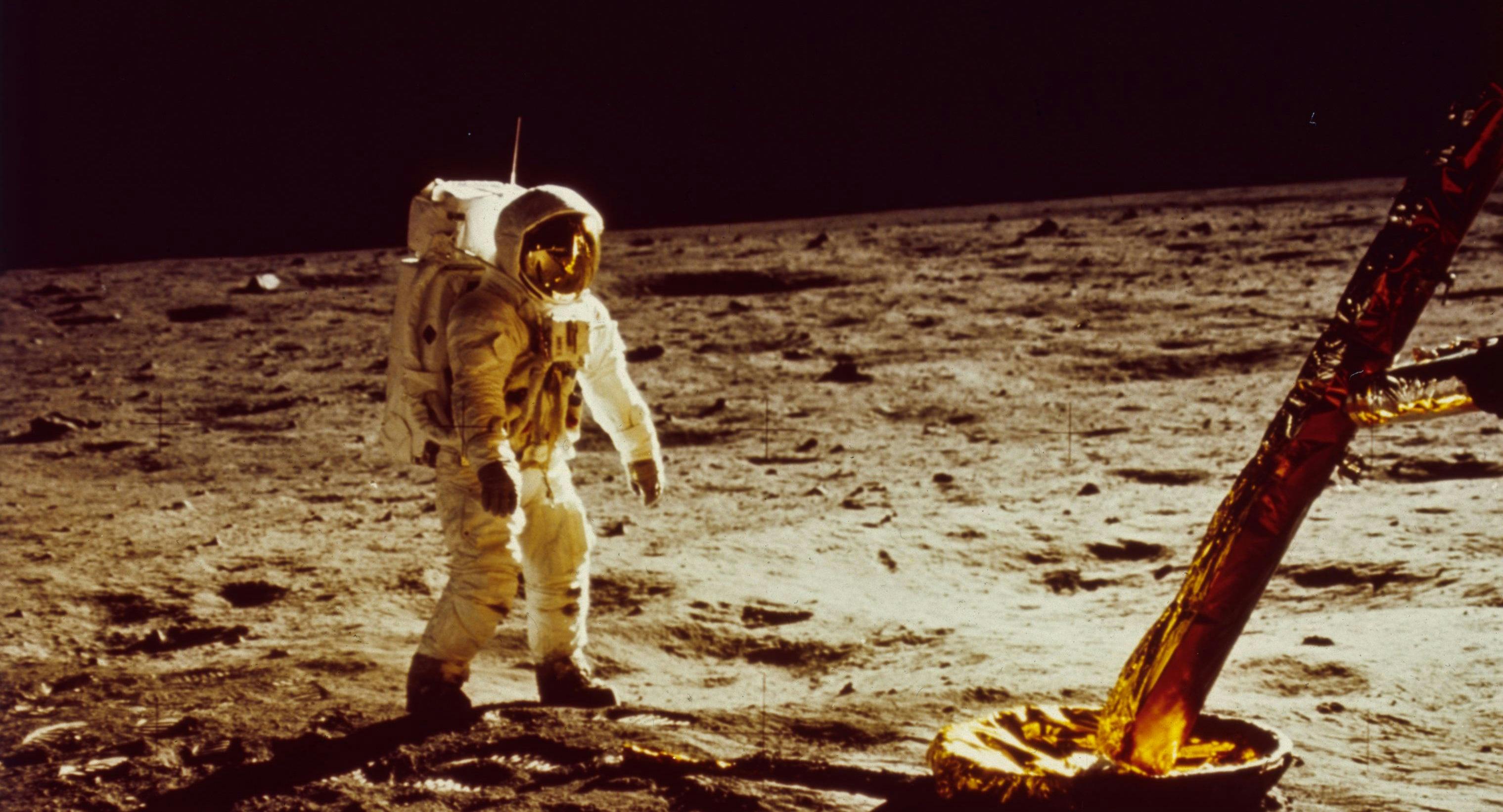
Neil Armstrong / Stringer
On July 21, 1969, Neil Armstrong became the first human to set foot on the surface of the Moon. With his first steps (“One small step for man, one giant leap for mankind”), we became a multi-planetary species and the possibilities seemed endless. If we could achieve such a feat, one that united the entire world, it was possible to do anything. That warm glow of community has since faded, but the amazing accomplishment of sending astronauts to another world and returning them safely to Earth is still an incredible feat.
Now, the 50th anniversary of that event is upon us, and as you can imagine, that means there are a slew of retrospectives appearing, in all forms. It can be confusing to sort through the sheer number of books, movies, podcasts, and television events out there, so here is a roundup of 10 pieces of Moon landing media you should consider as we count down toward this monumental anniversary.
Eight Years to the Moon: The History of the Apollo Missions — Nancy Atkinson (Book, July 2)
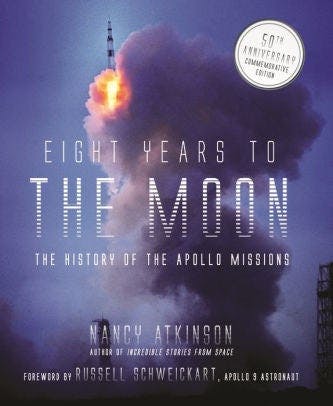
Page Street Publishing
If you’re looking to balance story with beautiful presentation, then Eight Years to the Moon is the book you should pick up. This history, which focuses on the scientists and engineers behind the Moonshot, is packed to the brim with full-color photographs but also exhaustive research backing up the narrative. Atkinson uncovered new stories about Apollo 11, including a harrowing re-entry event that put the astronauts in jeopardy, which was lost until now.
Apollo 11 (Movie, March 21, 2019)
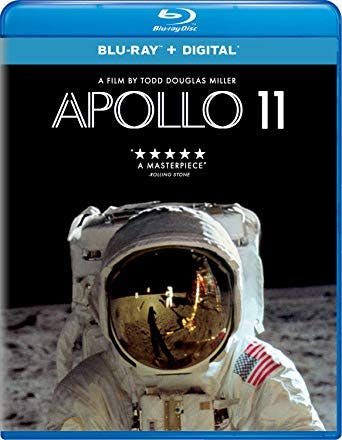
Universal Pictures
As the name suggests, this documentary film focuses entirely on the Apollo 11 mission. Rather than being a retrospective that looks back on the mission with the traditional interviews with those involved, though, Apollo 11 uses only contemporary footage from 1969. This creates an immersive, cinematic experience, especially considering it includes never-before-seen 70-mm footage from the launch of Apollo 11 and the recovery of the capsule.
Moonrise — Lillian Cunningham (Podcast, The Washington Post, late July)

The Washington Post
This new podcast from The Washington Post re-examines everything we know about America’s decision to go to the Moon. While conventional wisdom and overly optimistic histories tell us we made the journey for science, exploration, and the betterment of humankind, the real reasons were much more complicated (and political). Cunningham looks into newly declassified documents in order to tell the full story of why we made the moonshot.
American Moonshot: John F. Kennedy and the Great Space Race — Douglas Brinkley (Book, April 2)
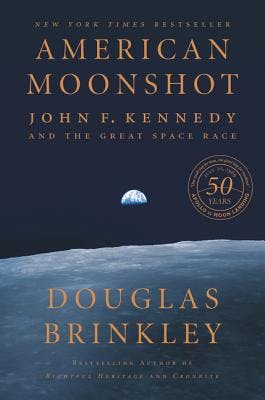
Harper
It’s hard to overstate President John F. Kennedy’s impact on our space program — after all, it was his decision to make a push for the Moon. Without his singular vision, it’s difficult to conceive of what our space program might look like now. This history takes a close look at the leadership that went into Kennedy’s decision to make the Moon our spacefaring goal, showing the reader how exactly NASA accomplished the seemingly impossible feat of landing an American on the Moon within a decade.
Apollo: Missions to the Moon(Documentary, National Geographic, July 17)
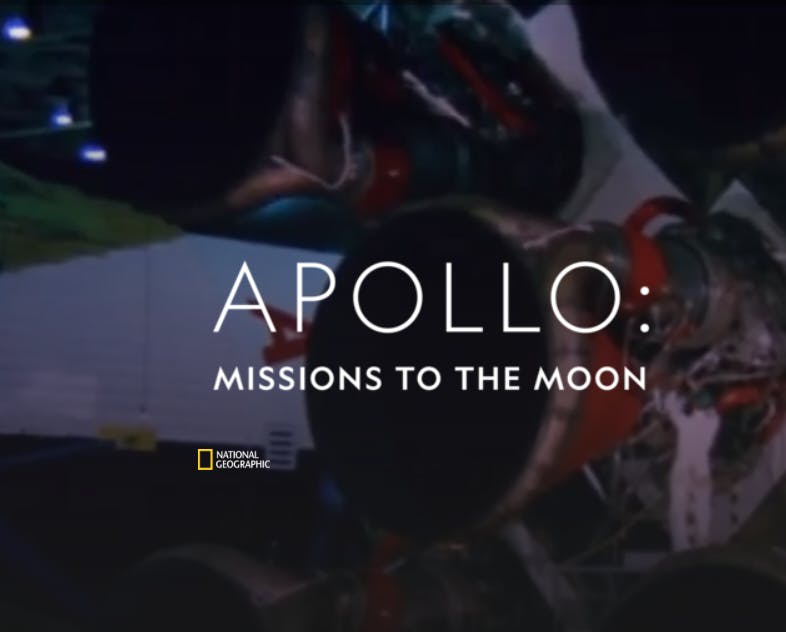
National Geographic
This documentary film takes a similar approach to the Apollo 11 film in that it eschews the traditional narration voiceover and instead delivers the story of the Apollo program, from beginning to end, with raw footage. The producers dug deep in order to bring viewers new video and audio they haven’t previously experienced, including “black box” recordings from the Apollo capsules and Mission Control. It also has a soundtrack composed by Hans Zimmer and Russell Emanuel.
Reaching for the Moon: The Autobiography of NASA Mathematician Katherine Johnson — Katherine Johnson (Book, July 2)
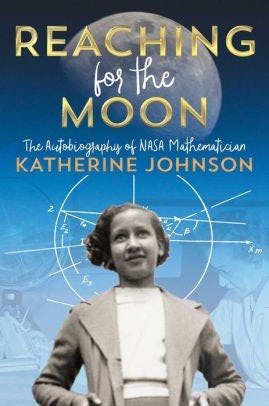
Atheneum Books for Young Readers
When it comes to coverage of and nostalgia about the space race, too many people leave out the contributions of women, and specifically, women of color. Yes, systemic sexism and racism meant that these women couldn’t be astronauts going to the moon, yet they persisted and served their country regardless of that. Now, Katherine Johnson, who was the center of the hit book and movie Hidden Figures tells her story in her own words in this memoir aimed at middle-school-aged children.
Shoot for the Moon: The Space Race and the Extraordinary Voyage of Apollo 11 — James Donovan (Book, March 12)
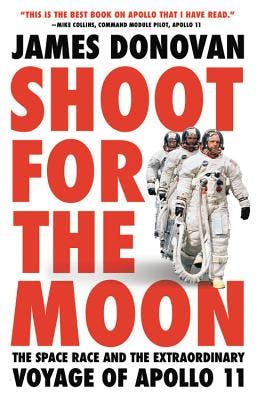
Little Brown and Co.
Michael Collins, the third crew member of Apollo 11, wrote what is widely regarded as the best astronaut memoir in existence, Carrying the Fire. So when he calls out a history for being the best book on Apollo he’s ever read (which the cover quote for Shoot the Moon), you can bet that’s reason enough to sit up and pay attention. This book covers the Mercury, Gemini, and Apollo programs in a narrative style that has the thrills and suspense of a fictional story.
American Experience: Chasing the Moon(Television Series, PBS, July 8)
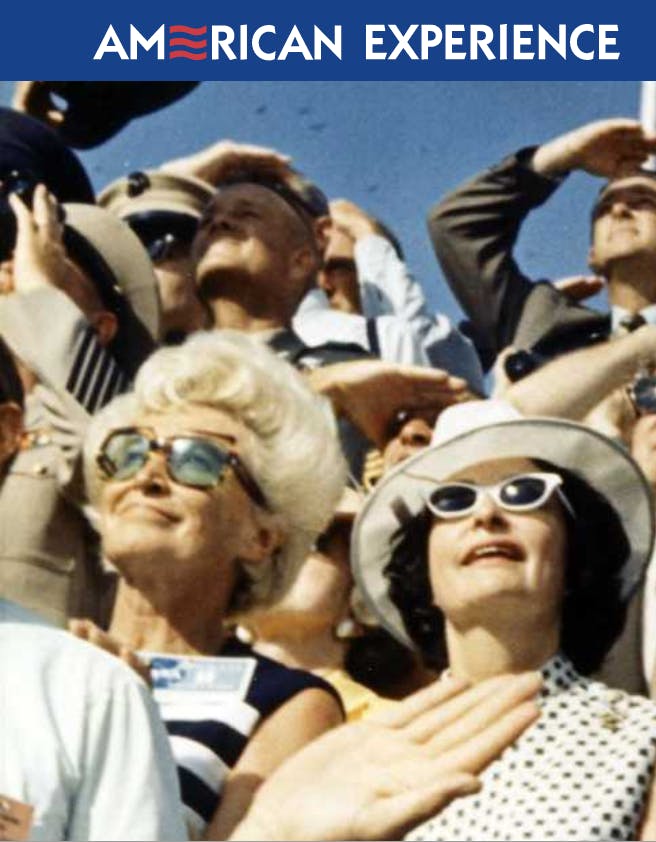
PBS
This new docu-series from Robert Stone is a four-hour tribute to spaceflight in the 1950s and 60s. It focuses on both sides of the race (for example, Chasing the Moon includes interviews with the son of Soviet Premier Nikita Khruschev) and includes women, which, unfortunately, is something you cannot take for granted when it comes to Apollo-era content. And if you want to get even more in depth here, there’s an accompanying book of the same name that expands on the stories and people presented in the series.
Apollo: A Graphic Guide to Mankind’s Greatest Mission — Zack Scott (Book, May 7)
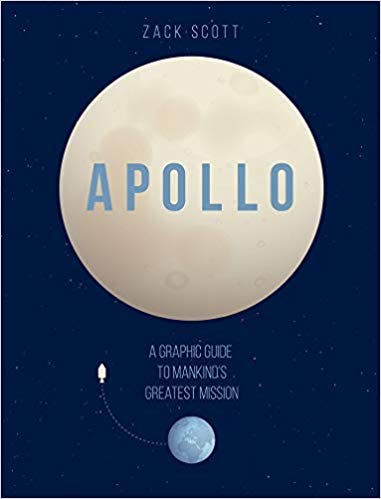
Harry N. Abrams
If you’ve read enough of these Apollo-era histories, sometimes it begins to feel like you’re reading the same stories over and over again. That’s where Scott’s book differs. While it’s still an account of the program that got us to the Moon and returned our astronauts safely back to Earth, it focuses on lesser known information and presents the information in an attractive graphic format. This is perfect for those who fixate on the details and like knowing the complete ins and out of every spacecraft and mission.
For All Mankind(Television Series, Apple, Fall 2019)

Apple
One of the brightest stars of Apple’s upcoming streaming service will surely be this upcoming drama from Ronald D. Moore (who cut his teeth in the Star Trek: The Next Generation writer’s room and was the showrunner for Battlestar Galactica). For All Mankind is an alternate history drama that takes us back to the days of the space race — but looks at what might have happened if the Russians had beat America to the Moon. It’s an exciting premise, for sure, as we think about the possibilities for our space program if we hadn’t achieved Kennedy’s dream.
Swapna Krishna (she/her) writes about tech, science, and sci-fi. She’s a contributing editor at SYFY FANGRRLS and has been published at Engadget, Gizmodo, Mental Floss, the Los Angeles Times, and more. You can find her on Twitter @skrishna.

